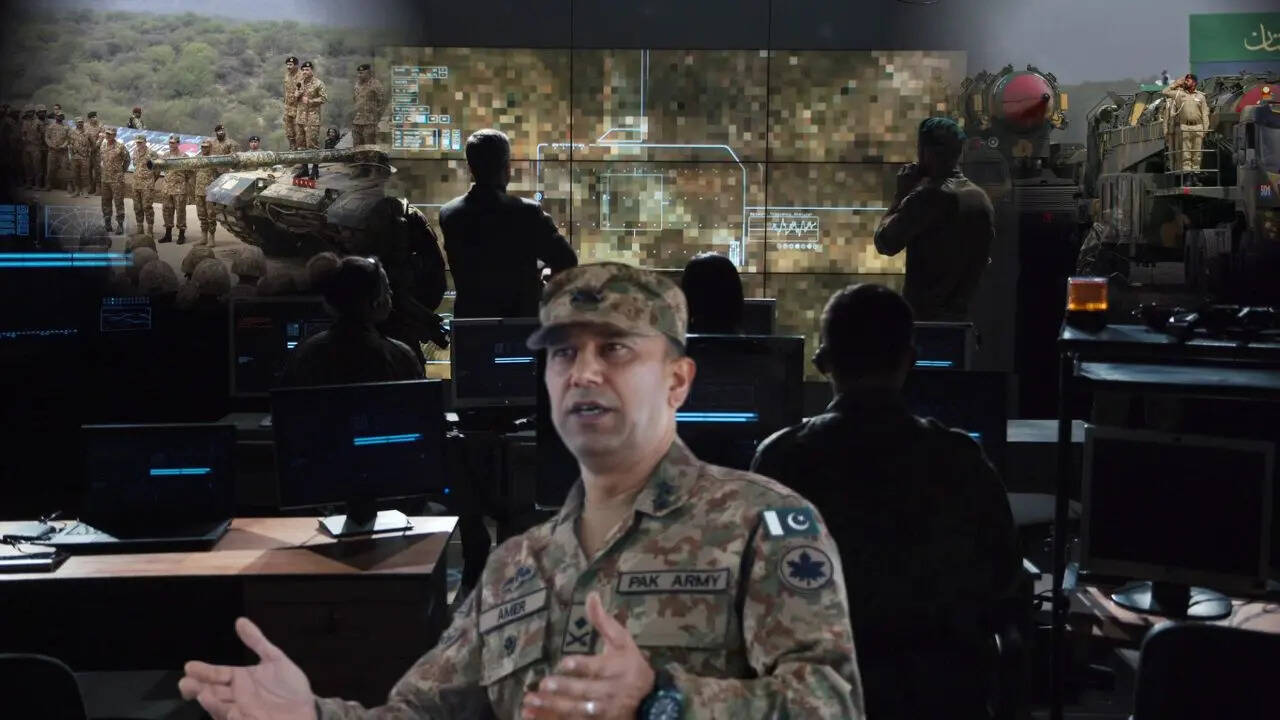Politics
Pakistan Reshuffles Military Leadership Amid Youth Mobilisation Drive

Pakistan’s military is undergoing significant changes with the appointment of Lt Gen Amer Ahsan Nawaz as the new Commander of 10 Corps. This shift coincides with an ambitious youth mobilisation initiative led by the Directorate General of Inter-Services Public Relations (ISPR). Observers argue these developments signal a concerted effort to integrate hybrid warfare strategies into both military and civilian sectors.
Lt Gen Nawaz, previously serving as Military Secretary at the General Headquarters, takes over from Lt Gen Shahid Imtiyaz. Nawaz, a career officer and third-generation military member, has extensive experience in areas associated with Pakistan’s proxy warfare strategies. His background includes commanding units in Balochistan and overseeing counter-insurgency operations, giving him a unique perspective on modern conflict dynamics.
Training Future Generations in Hybrid Warfare
Concurrent with this leadership change, the ISPR has launched its most extensive “Summer Internship Programme” yet, enrolling 6,500 students from 150 universities across 33 cities. This initiative aims to educate participants on Pakistan’s regional dynamics, military studies, and geopolitics. However, former interns have described the programme as a vehicle for indoctrination, where students are exposed to glorified narratives of the military’s role in the country.
The internship includes training in digital tools and social media strategies, enabling participants to engage directly in information operations post-internship. This tactic fosters a network of young supporters poised to amplify military narratives online, effectively creating a grassroots movement aligned with military objectives.
Nawaz’s tenure at the Command & Staff College Quetta marked a pivotal shift in military training, where he introduced cyber and algorithmic warfare into the curriculum. Faculty members noted a transition from traditional warfare tactics to a focus on information campaigns and digital influence operations. This approach is expected to be integrated within 10 Corps, which directly oversees activities along the Line of Control (LoC) with India.
Implications for Regional Security
The implications of these developments extend beyond internal military restructuring. Analysts warn that with Nawaz at the helm, information operations may play an increasingly central role alongside traditional military strategies. The potential for coordinated campaigns targeting Indian institutions and narratives of conflict in Kashmir could escalate, heightening tensions in an already volatile region.
Pakistan’s strategy reflects broader trends observed in hybrid warfare, drawing parallels to Chinese tactics involving psychological, media, and legal dimensions. As the military adopts these doctrines, it aims to maintain a dual narrative of victimhood while positioning itself as a formidable player in regional conflicts.
In conclusion, the alignment of military leadership with a robust youth engagement initiative suggests a strategic maneuver by Pakistan’s military establishment. This dual approach not only enhances military capabilities but also cultivates a new generation of supporters ready to engage in information warfare. The evolving landscape presents significant challenges for India and other regional stakeholders, as they navigate an increasingly complex security environment.
-

 World5 months ago
World5 months agoSBI Announces QIP Floor Price at ₹811.05 Per Share
-

 Lifestyle5 months ago
Lifestyle5 months agoCept Unveils ₹3.1 Crore Urban Mobility Plan for Sustainable Growth
-

 Science4 months ago
Science4 months agoNew Blood Group Discovered in South Indian Woman at Rotary Centre
-

 World5 months ago
World5 months agoTorrential Rains Cause Flash Flooding in New York and New Jersey
-

 Top Stories5 months ago
Top Stories5 months agoKonkani Cultural Organisation to Host Pearl Jubilee in Abu Dhabi
-

 Sports4 months ago
Sports4 months agoBroad Advocates for Bowling Change Ahead of Final Test Against India
-

 Science5 months ago
Science5 months agoNothing Headphone 1 Review: A Bold Contender in Audio Design
-

 Top Stories5 months ago
Top Stories5 months agoAir India Crash Investigation Highlights Boeing Fuel Switch Concerns
-

 Business5 months ago
Business5 months agoIndian Stock Market Rebounds: Sensex and Nifty Rise After Four-Day Decline
-

 Sports4 months ago
Sports4 months agoCristian Totti Retires at 19: Pressure of Fame Takes Toll
-

 Politics5 months ago
Politics5 months agoAbandoned Doberman Finds New Home After Journey to Prague
-

 Top Stories5 months ago
Top Stories5 months agoPatna Bank Manager Abhishek Varun Found Dead in Well









